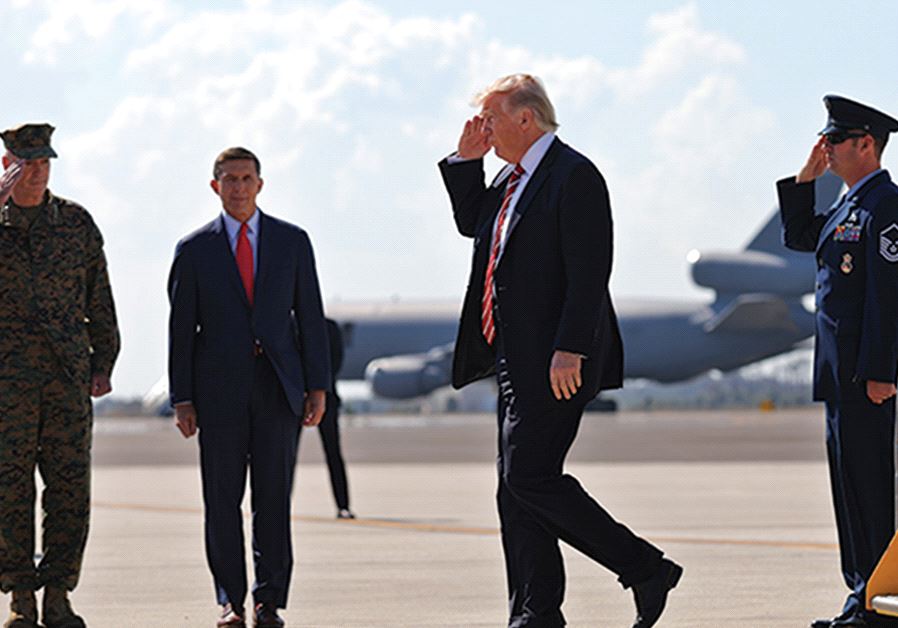Can US disrupter-in-chief trigger some progress?
Peace will only come when the reasonable Palestinian majority silences the murderous Palestinian extremists – who usually dominate.
 US PRESIDENT Donald Trump salutes as he arrives at MacDill Air Force Base in Tampa, Florida, on Monday
US PRESIDENT Donald Trump salutes as he arrives at MacDill Air Force Base in Tampa, Florida, on Monday